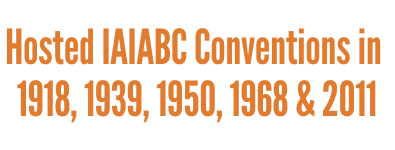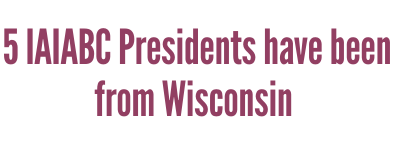Wisconsin Worker's Compensation Division

IAIABC: Please provide a profile of your organization.
Steven Peters, Division Administrator, Wisconsin Worker's Compensation Division: The Wisconsin Worker's Compensation Division (WCD) is charged with administering the worker's compensation statutes and related administrative code of this state. Wisconsin enacted the first constitutionally valid worker's compensation law in the United States in 1911. With a staff of 70 based in the capitol city of Madison, the WCD aims to ensure that injured workers receive required benefits from insurers or self-insured employers; encourage rehabilitation and reemployment for injured workers; and promote the reduction of work-related injuries, illnesses, and deaths.

IAIABC: How does your organization serve the workers' compensation industry or what do you see as the most important role you play in the workers' compensation industry?
SP: As the regulator, the WCD enforces the law in a fair and impartial manner, and provides guidance on rights and responsibilities, in order to assist in the most efficient and effective administration of claims. We work to maintain a stable, predictable, and efficient system which helps keep stakeholder costs low and user satisfaction high.

IAIABC: What do you see as some of the major challenges the industry is facing and how can we as a community address them?
SP: Medical cost is a high profile topic across the industry. While cost per service in Wisconsin is higher than many other states, utilization is low and disability duration is shorter. Taken as a whole, total claims costs are about average. There is substantial debate about what, if anything, should be changed, with a concern for unintended consequences. The discussions/studies that IAIABC has historically undertaken in this area should be continued in order to provide policy makers with the widest possible array of scenarios in use.

IAIABC: Are there any projects/programs/initiatives going on at your organization that you are particularly excited or enthusiastic about?
 SP: To improve customer service and leverage 21st century technology, a Litigated Case Portal was created providing the opportunity for attorney firms to upload all relevant litigated documents and forms via a secure login website. Uploaded documents load directly into Kofax Total Agility for electronic processing by WC staff, document images load to the imaging database and, when necessary, move via workflow to other staff for additional processing. The Litigated Case Portal eliminates paper processing by WC staff; allows for the eventual elimination of hard copy files; provides a cost savings to attorney firms that no longer have to send litigated documents via USPS or use a fax utility that oftentimes incurs a monthly charge; and eliminates the lag time from USPS mailing.
SP: To improve customer service and leverage 21st century technology, a Litigated Case Portal was created providing the opportunity for attorney firms to upload all relevant litigated documents and forms via a secure login website. Uploaded documents load directly into Kofax Total Agility for electronic processing by WC staff, document images load to the imaging database and, when necessary, move via workflow to other staff for additional processing. The Litigated Case Portal eliminates paper processing by WC staff; allows for the eventual elimination of hard copy files; provides a cost savings to attorney firms that no longer have to send litigated documents via USPS or use a fax utility that oftentimes incurs a monthly charge; and eliminates the lag time from USPS mailing.

IAIABC: Why is your organization a member of the IAIABC? What would you tell others about the benefits of membership?
 SP: Wisconsin has been a jurisdictional member of the IAIABC since its formation in 1914. It was apparent to the leaders of this agency then, as it is now, that a forum for regulators to discuss problems and formulate solutions to complex issues is of critical importance. The benefits of being able to meet with peers, sharing both successes and challenges, are incalculable. Without these relationships, a regulator is at a distinct disadvantage. Evidencing this historical and ongoing support of the mission of the IAIABC, Wisconsin has provided five presidents, and hosted five Conventions in the history of the Association.
SP: Wisconsin has been a jurisdictional member of the IAIABC since its formation in 1914. It was apparent to the leaders of this agency then, as it is now, that a forum for regulators to discuss problems and formulate solutions to complex issues is of critical importance. The benefits of being able to meet with peers, sharing both successes and challenges, are incalculable. Without these relationships, a regulator is at a distinct disadvantage. Evidencing this historical and ongoing support of the mission of the IAIABC, Wisconsin has provided five presidents, and hosted five Conventions in the history of the Association.
